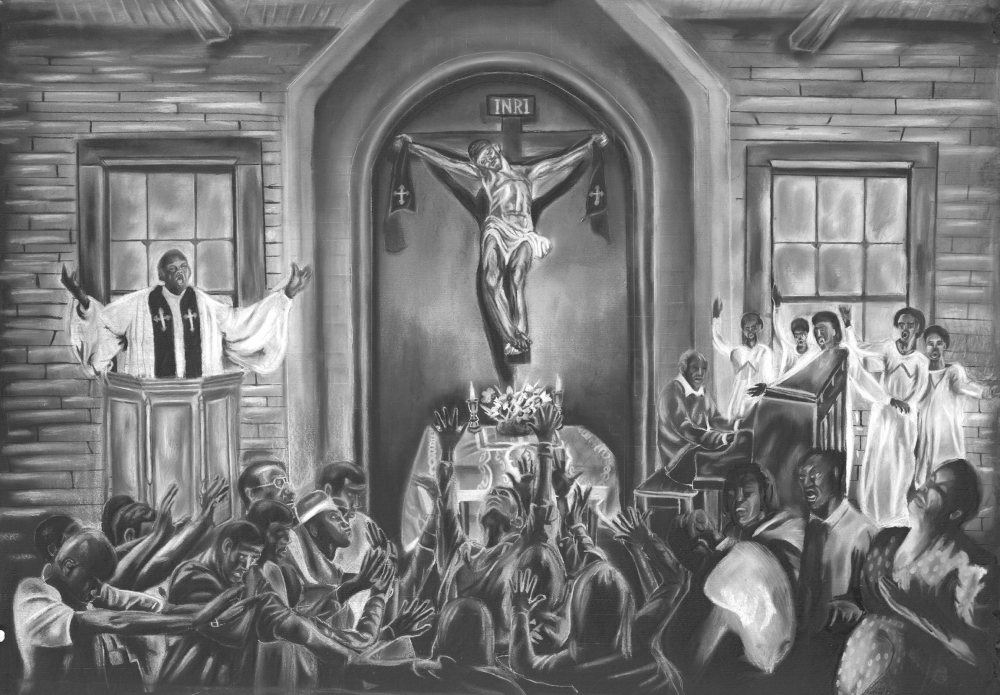Lift Every Voice

Oppression, rejection and segregation leave a human being with no one to turn to, but God. For African Americans fighting for equality, hope often came alive from spiritual songs, which were sung by slaves in the heat of southern plantations long before. The black church provided the Civil Rights Movement with hope and resolve. Hope gave the courageous protesters the fortitude to persevere. They believed that God would help them. Spiritual songs sung in the churches throughout the South during the era of segregation engendered in African Americans a sense of optimism for the eventual vindication of their struggles. In the name of freedom, activists turned to God, belting out harmonies from the bottom of their heart that were colored with the pain of oppression:
“Lift every voice and sing,
Till earth and heaven ring,
Ring with the harmonies of liberty;
Let our rejoicing rise
High as the listening skies,
Let it resound loud as the rolling sea.”
In “Lift Every Voice,” Washington depicts an African American congregation in the midst of communal worship.
Born in slavery, weaned under Jim Crow segregation, and reared in discrimination, African American worship is inseparably linked with black life.
While the varied cultures of the Christian world each have their beautiful and distinctive ways of worshiping, the African American experience is unique. African American worship is rooted in its unique social history in America and the religious heritage African slaves brought with them to the New World – all molded by the unique social context of the African American.
As depicted in “Lift Every Voice,” community is a grounding principle of black worship, understood by African Americans as an encounter involving God, the worshiper, and the broader community. For them worship is not primarily the expression of a private devotion to God, but rather a community event. They believe that public, communal worship empowers them to persevere in the face of oppression and the inequities of the world, even though the odds might appear to be against them. This faith was pivotal to the ultimate success of the Civil Rights Movement.
In “Lift Every Voice,” Washington represents a southern preacher, his face strained as he exuberantly leads a freedom song for his congregation. Situated to the far right, a woman’s choir and a lone man playing the piano accompany him, their enthusiasm rivaled only by the passion of the congregation, which stands to its feet, singing, praising, crying and dancing in an overwhelming show of emotion over the redemptive power of God.